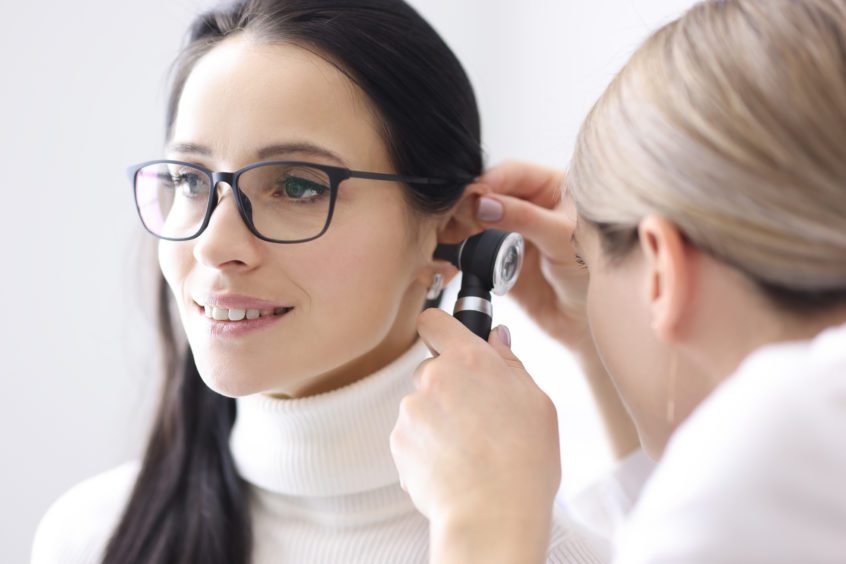The topic of hearing loss can be a difficult one to broach, especially with those close to you. Many people don’t want to believe they have a hearing loss at all, while others acknowledge that they can’t hear as well as they used to, but they don’t understand how hearing aids work, and why you can’t just share yours with the next person.
Here, our audiologists dispel four common misconceptions they frequently hear from patients.
- I only need one hearing aid.
Many people notice that they hear better in one ear than the other, and that may actually be the case. In fact, some people have what is called a unilateral hearing loss. This is when you have reduced or no hearing in one ear. If the hearing loss is very severe or profound, it is also called single-sided deafness (SSD). A unilateral hearing loss is common, and if you are diagnosed with this type of hearing loss, you may indeed need only one hearing aid.
But most people with hearing loss have it to some degree in both ears, though the loss may be different for each ear. For these people, wearing one hearing aid doesn’t work well. Because people have two ears, this is like treating half the problem. Think of it this way—you wouldn’t wear half a pair of glasses. Your vision and depth of field would be distorted. The same goes for hearing aids—your ears work best together, and they hear better when you wear hearing aids that are properly programmed for each ear.
2. I can let my spouse or significant other borrow my hearing aids, can’t I?
Sharing hearing aids isn’t a good idea. Prescription hearing aids have a tiny, powerful computer chip inside them that the audiologist programs specifically for your hearing loss. Your left and right ears may have different hearing aid prescriptions, so even mixing up your left and right hearing aids can cause a problem for you. But sharing your hearing aids with someone else isn’t a good idea because your hearing aids are programmed just for you, and no two ears are exactly the same. That means you may be able to hear great with your hearing aids, but your spouse might not be able to hear with them at all, or the sounds may be muffled or muted. It’s best to not share hearing aids.
3. Why won’t the type of hearing aids my neighbor has work for me?
Everyone’s hearing loss is unique. That’s why there are so many different types and styles of hearing aids. For example, your neighbor may have tiny in-the-canal hearing aids and love them, but those same hearing aids may not be comfortable for you. You might find mini behind-the-ear hearing aids a better fit. The same is true of the hearing aid brands sold at independent audiology clinics. Some brands offer features that may be better suited to your hearing loss, and which we may recommend for you. We also see patients who think they want a specific style of hearing aid, only to discover it isn’t really the best for them. A doctoral-level audiologist is an expert in the types and styles of hearing aids available, and based on your hearing evaluation, lifestyle and budget, can recommend hearing aids best suited to your needs. So, you might end up with hearing aids similar looking to your neighbor’s, but then again, you might not.
4. I only need to wear my hearing aids when I need to hear.
You need to hear all the time, not just when you are in public or around other people. Your ears (and brain) are constantly working, and even if no one is speaking to you or you aren’t actively listening to something or someone, you need to hear. Ambient sounds, like the air conditioner or dryer running, or warning sounds you don’t expect, like a car honking, a smoke detector or weather alerts, are important sounds you don’t want to miss. Most audiologists recommend that once you become accustomed to your hearing aids, you wear them from the time you wake up to the time you go to bed (with certain exceptions) so that you don’t miss any of the important sounds that are part of your day.
Bottom line, every individual is unique and so is their hearing loss. Be sure you see a doctoral-level audiologist for a comprehensive evaluation, which can determine whether you have a hearing loss. If you do, your audiologist can recommend the best solutions to help you hear your best.



